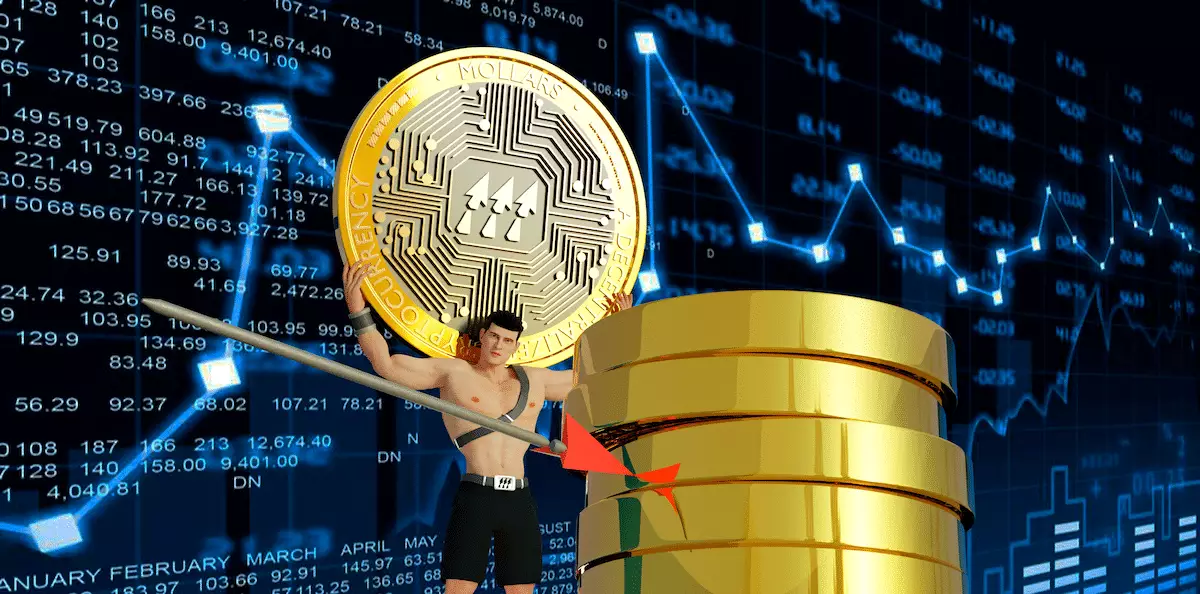In the ever-evolving world of cryptocurrencies, investors are always on the lookout for alternatives to traditional options like Bitcoin. One such alternative that has been gaining significant attention is Mollars ($MOLLARS). Currently in its 3rd round of the token presale stage, Mollars has been experiencing record-breaking demand, with nearly 100,000 tokens being sold daily. This store-of-value token not only aims to help traders combat inflation but also offers a solution to the rising issue of high Bitcoin blockchain fees. Investors have been flocking to Mollars in hopes of reaping profits of $22,000 per $100 invested. With a total supply of only 10 million tokens, there is a possibility that this ‘bitcoin-like’ token built on Ethereum’s blockchain could reach a value of $100 or even higher in the future.
Bitcoin’s meteoric rise over the years is a testament to the potential of cryptocurrencies with scarce supply. Starting at less than 1 cent during its token presale stage in 2011, Bitcoin’s value has surged to over $42,000. And the upward trend doesn’t seem to be stopping anytime soon. Experts predict that Bitcoin could reach as high as $1.5 million by 2030, especially with the recent update from the United States Securities and Exchange Commission (SEC) allowing major investment agencies to invest in Bitcoin. This approval opens the doors for trillions of dollars to flow into Bitcoin from wealth management services like Merrill Lynch, JP Morgan Chase, Morgan Stanley, and Charles Schwab.
Despite Bitcoin’s impressive growth, one of its major drawbacks is its high blockchain transaction fees. These fees have become increasingly burdensome for crypto traders. In a recent case, a single swap on Bitcoin’s blockchain cost a trader over $123,000. The steep fees associated with Bitcoin transactions can easily wipe out significant sums of money. This has led many investors to seek out alternatives that offer similar store-of-value benefits without the exorbitant fees. Enter Mollars.com, the beginning of a Bitcoin alternative built on the more efficient Ethereum blockchain. With faster and cheaper buy and sell trades, the Mollars store-of-value token has caught the attention of savvy investors.
The Allure of Mollars for Investors
Investors are not blind to the potential of Mollars. In fact, major players in the crypto market are buying thousands of dollars’ worth of Mollars daily to secure the best rates during the presale stage. Priced at $0.45 per token currently, Mollars is expected to increase to $0.62 per token once it launches on public crypto exchanges in May. With a maximum hard cap set at 4 million tokens, the Mollars ICO has already sold close to 800,000 tokens, representing 20% of the total supply. The overwhelming support for Mollars has garnered the attention of decentralized finance (DeFi) experts and analysts, who believe that the token can yield massive short-term returns of +2,100% and long-term returns of up to +9,500,000%. While these figures fall short of Bitcoin’s incredible +20,000,000% ROI yields since its ICO, Mollars still has the potential to surpass that if demand remains strong.
The Significance of Token Supply
One crucial factor to consider when investing in a store-of-value token with long-term utility against inflation is the total token supply. This is where Mollars and Bitcoin shine in comparison to memecoins like Shiba Inu (SHIB) and Bonk Inu (BONK). Bitcoin has a total supply of 21 million coins, while Mollars has a relatively low supply of 10 million tokens. In contrast, Shiba Inu has a staggering supply of 4 quadrillion coins, making it unlikely to achieve high value due to such excessive supply. If by some miracle Shiba Inu were to reach a demand that pushed its prices to $100, a $100 investment today would yield an astronomical $1 billion, an ROI of +1,099,021,770.54%.
While the possibility of such enormous returns may seem fantastical, it highlights the importance of token supply when evaluating the potential growth of a store-of-value token. Mollars and Bitcoin offer more promising alternatives due to their scarcity and infrastructure. With a more efficient blockchain and a limited token supply, Mollars has positioned itself as a strong contender in the crypto market, aiming to provide traders with a reliable alternative to Bitcoin. As the demand for cryptocurrencies continues to rise, it will be interesting to see how these alternative tokens fare and whether they can disrupt the dominance of Bitcoin as the leading digital currency.



Leave a Reply